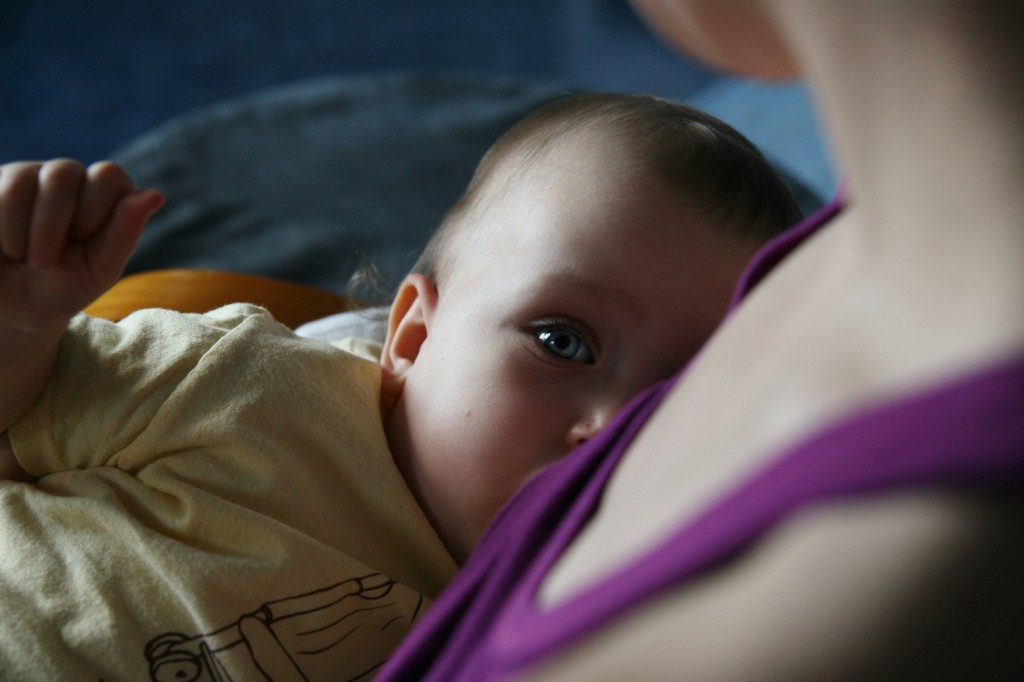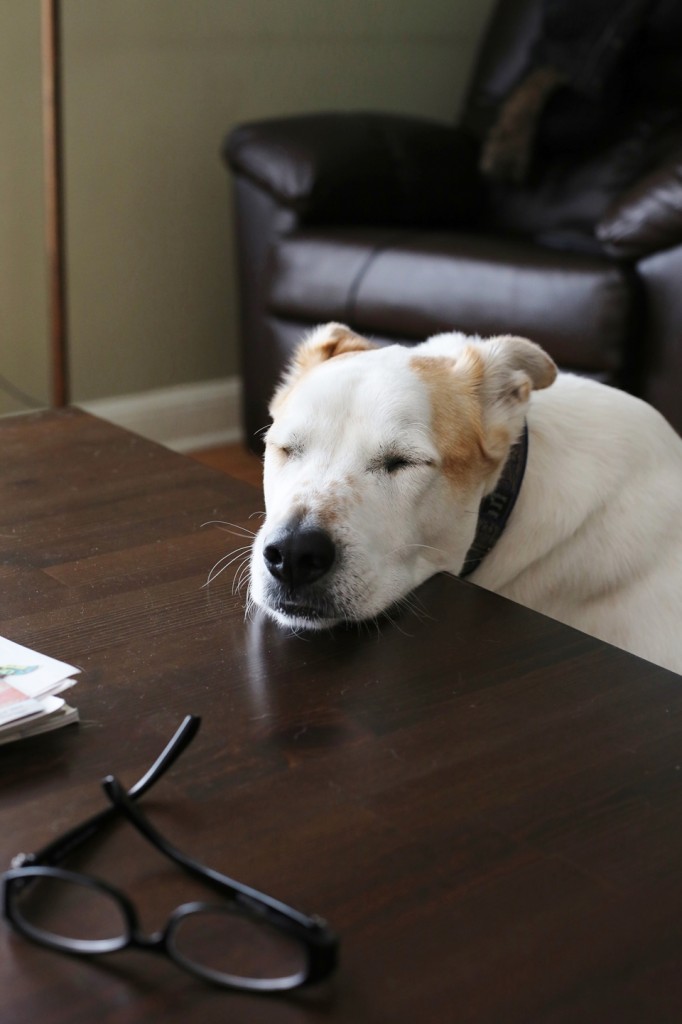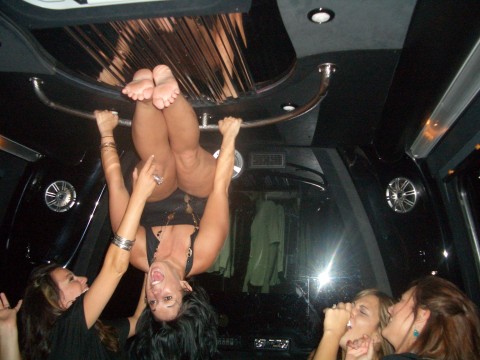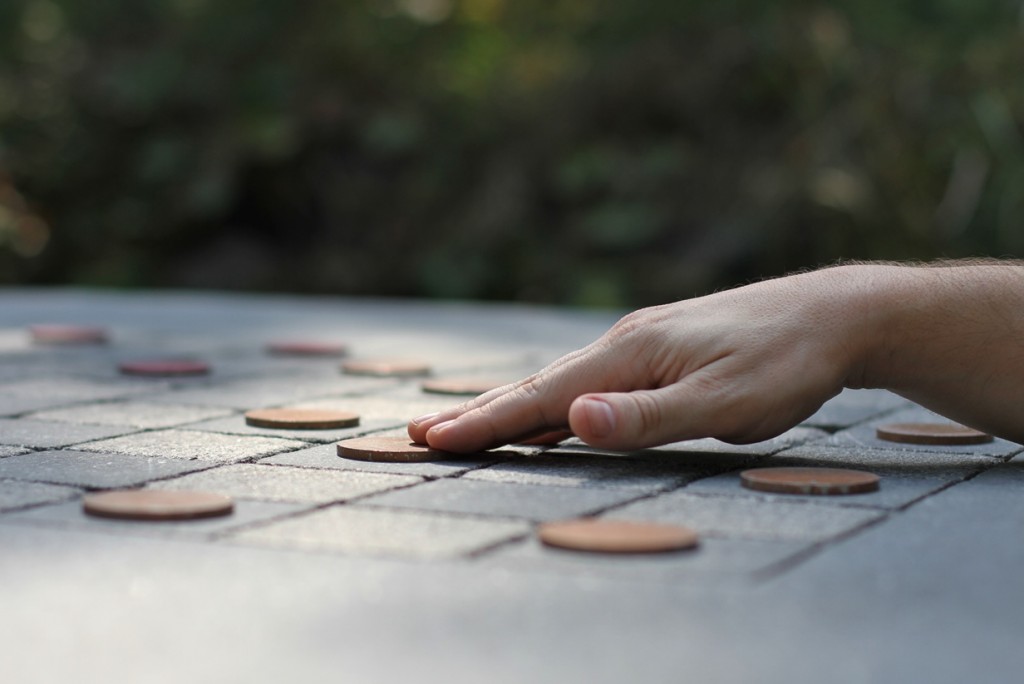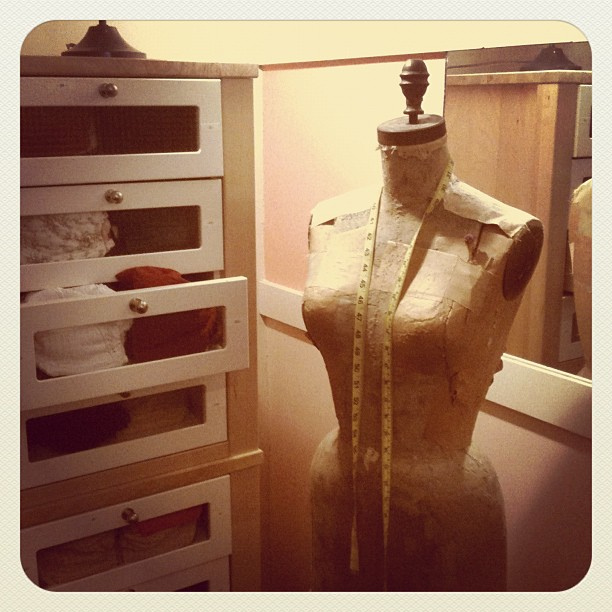
By Zsofi McMullin
The surgeon sat between my legs on a low stool, his left hand gently cradling the curve of my right breast as he drew dotted lines and circles on my skin. I was sitting on a hospital bed, my feet dangling off the side and I wasn’t sure where to look. His touch was measured and medical, but the intimacy of the moment took my breath away.
“This isn’t awkward at all,” I joked, trying to break the silence in the small examining room. The surgeon laughed with me, but never broke his concentration on the measurements—between collarbone and nipple, the space between breasts—mapping out where cuts and sutures and skin will go.
He quietly explained his strategy for the surgery to the resident sitting next to him, but he continued to focus on my breasts. I was in danger of breaking out in giggles and making his precise lines go wiggly, so I tried hard to concentrate on something else … anything. His wispy, graying hair. Sun-kissed, rugged cheeks. Blue eyes. Broad shoulders, sculpted arms, big, secure hands. Concentrating on him clearly didn’t make things easier. His breath smelled like chocolate.
This, I found the most reassuring.
•••
I am not sure when I realized that I have big breasts. And not just big breasts, but really big, bigger than big should be. I’ve always had this body and you get used to seeing yourself every day in a certain way. Sure, it changed with puberty, and the Freshman Fifteen, and the Married Ten, some weight loss here and there, and with pregnancy. But its essence—round belly, curvy hips, soft thighs, and big boobs—never really changed.
I got my first bra when I was twelve. At the time we lived in China because of my dad’s job, and I remember my mom gently suggesting that I should try on a bra. I was a bit surprised that she happened to pack one that fit me. I only started to wonder later whether it was actually one of her bras.
So that’s how it started and the sizes just kept going up and up. After we returned home from our Chinese adventure I got a couple of soft, cotton bras with pink hearts on it. Later my mom steered me to more supportive styles with wide straps and that awful beige-y hue that old ladies wear.
There are a lot of humiliating things about having unnaturally large breasts. The stares, especially when you are too young to handle such attention. The difficulty in finding clothes that fit, a bathing suit, or not being able to walk around without a bra, unless you want to look really, really ridiculous. But the thing that always got to me was shopping for bras: in almost every store—even in ones that seem to cater to larger women—you have to look in the very back and the very bottom of every display rack to find your size. I don’t know how many times I found myself shedding coat and purse and actually kneeling on the store floor to find what I was looking for. If, I could find what I was looking for.
•••
The first time I got naked with my first serious boyfriend, he was very nervous about taking his shirt off. I didn’t really understand until he finally pulled his t-shirt over his head. There were small scars around his nipples and he quietly admitted that as a teenager he’d had breast reduction surgery.
I thought about him as I was getting ready for my own surgery and about how he liked to compare my breasts to fruits: apples, oranges, peaches. “They’re more like melons,” I corrected him once, and I remember the shocked look on his face before we both burst into laughter.
There were men who were afraid of my breasts, hesitating about touching them, maybe intimidated by their heft. There were men who worshipped and treasured them, removing my bra last as if to save the best for last. There were men who didn’t really care or notice or comment.
But as I got older, I found that I cared and noticed more and more. I don’t think my breasts have ever held me back from doing things or made me more timid or shy. But, of course, it’s hard to say now because I can’t relive my younger years with small breasts for comparison. Could I have been more popular? More active and sporty? More outgoing, outspoken, confident? Would I have been more adventurous when it came to trying new things or going after things? I’d like to think that I was never defined by my breasts, but I am sure I was to some extent, at least in my mind. And who knows how others have thought of me? Was I ever “that girl with the rack”?
After I gave birth to my son I thought, finally, my boobs can do something good. But their size didn’t ensure that they would also produce enough milk, and it was actually harder to maneuver my nipples into the tiny, waiting mouth without smothering him. So not only was it impossible to find a pretty bra, or wear tank tops, or run, or just feel like I am not all boob, but now they couldn’t even feed my baby?
As the pain in my back and shoulders intensified each year, I finally made the decision: It was time for them to go.
•••
I found out my true bra size in a very posh lingerie shop in London a couple of years ago. Our kind B&B owner told me that I must go there because they are sure to carry my size. At the time, I thought that was a bit forward, and frankly I was just so sick of the humiliation of it all. But I was also curious. So I dragged my husband along and he walked around the neighborhood while I browsed. A woman who was about my age and was also fairly well endowed, pulled me into a dressing room. Even before I took my shirt off she said, “You are a 40H. I’ll be right back.” The number sounded impossibly foreign, especially because I realized that the bras I was squeezing myself into were two or three sizes too small.
She came back with a black lacy bra with no wires, and she quickly pulled off my old bra, which poked and bulged in all the wrong places. She put the black piece on me, adjusting me without any hesitation or permission and boom: there were the ladies, all tight and firm, lifted, separated, in place, and happy. The bra cost two hundred dollars. I bought it without hesitation. I wore and treasured that bra for years and years, washing it by hand, air-drying it, until it slowly, slowly fell apart.
•••
The pain was excruciating when I woke up from the surgery. My nipples were burning and my chest felt heavy and somehow hollow at the same time, as if my chest cavity were scooped clean.
As a new dose of pain medication took effect and the anesthesia wore off, I took a quick peek under my hospital gown. I couldn’t really see much—just bandages and an ugly surgical bra that was way too tight. The nurses and the surgeon were obviously very excited about the results. “They removed five pounds,” one nurse informed me. It was clear that it was a big deal.
The next day at my follow-up appointment to remove drains, the surgeon made a special point to stop by and help the nurse working on me. He thumbed my nipples to see if I had any sensation—yes, I did, thank you very much—and marveled at his own handiwork. It took me a while to work up the courage to look at them without the bra and without the bandages.
If they had removed five pounds of flesh from my stomach or from my thighs, I don’t think the experience would have been that emotional. But I couldn’t quite speak or put feelings into words when I saw my breasts—small, white, firm, and even with the bruising and the swelling and the specks of blood and blue ink left over from the surgery so, so very beautiful.
“We are so excited for you,” the nurse said. “This is going to make a huge difference in your life.” The surgeon put clean gauze around my incisions and held gauze pads to my breasts as the nurse eased a clean surgical bra over my shoulder and around my chest. He squeezed my hands as he left, clearly touched by what he had done for me; I wasn’t really sure what to do with his enthusiasm. I wanted to say something witty about how excited I was, or how certain I was that my life would change, or how I really, really understood the significance of what I have done.
But I really didn’t—not then and maybe not even now. And maybe there isn’t a greater meaning to any of those five pounds of fat and tissue. The body that was mine for all these years is no longer, but I carry its history and experiences inside. Now that there is no more pain, the swelling is gone and my skin has smoothed out again, everything else about me remains the same – the belly, the hips, the hair, the nose, the stubbornness, the introversion, the indecision, the writing, the chocolate, the four-year-old.
I am still me.
Still, when I look in the mirror every morning, I feel giddy.
•••
The lingerie shop that opened near my office is one of those places where I never would have thought about shopping just a few months ago. It is not a store that carries special sizes. There are three mannequins in the window wearing lacy, gauzy bras and panties, silky robes. Behind their headless bodies is a large room with neat racks on the walls—no digging around on the floor here.
A very young, tall, and skinny salesgirl shows me to a dressing room. I try not to be too obvious about checking her out when she mentions that she sleeps in a bra because she has large breasts. I can’t see what she is talking about.
She measures me and announces my new size. “You are between a 38 F and a 40 DD,” she says and quickly leaves the dressing room to pick out some bras for me. I am a bit bummed. Those numbers still sound incredibly big to me, but when I look at myself in the half-light of the dressing room what I see is teeny-tiny compared to my old self. I try hard not to concentrate on those numbers and letters. Just like weight, height, or age, they are just numbers after all.
The first bra I put on is light purple with black lining and lace. The straps are ruched and skinny, with just two hooks in the back and a small, rhinestone heart and a black silk bow in the front. “It fits like a glove,” the salesgirl says as she adjusts the straps, and I am too busy checking myself out to respond. I try on three more and I really can’t believe that all of this delicate and tiny silk and lace can be mine.
Whatever this surgery will come to mean in my life, whatever change it will bring—or not—almost doesn’t matter. This is a pleasure in life: to feel normal, to feel pretty, to have soft, luxurious fabric against my skin, to look at myself and not turn away. The salesgirl asks if I want my husband to come in and take a look. I tell her no. He will get his turn, but this moment is all mine.
I don’t check the price tags. I buy them all. The ladies and I waited a very long time for this.
•••
ZSOFI MCMULLIN was born in Budapest and lived there until she turned eighteen. She became a “full-grown-person” over the past nineteen years spent in the U.S. She lives on the coast of Maine with her husband and her four-year-old son. Her day job is in publishing, but she spends all of her free time between four and five a.m. every morning imagining that she is a writer.

 Follow
Follow
